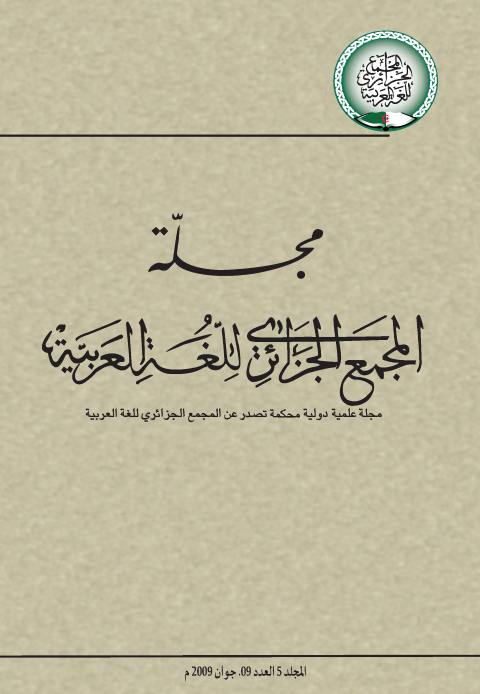القياس على الأكثر عند نحاة العربية وما يترتب عليه
DOI:
https://doi.org/10.70443/jaaal.v5i1.149الكلمات المفتاحية:
القياس على الأكثر، النحاة، ترتُّبالملخص
يُكثر كلّ النّحاة العرب من القول بأنّ " الأكثر هو الّذي يقاس عليه" ولا يُقاس على الأقل. قال سيبويه: "لأنّ فُعالا في الأسماء إذا جاوز الأفعلة إنّما يجيء عامّته على فِعْلان، فعليه تقيس على الأكثر" (1/101). وقال:" هو أظرف الفتيان وأجمله ليس بمطّرد ولا يُقاس عليه" (1/41). وقال أيضا: "ولكن الأكثر يُقاس عليه" (2/216). وقال: فهذا الأقل نوادر تحفظ عن العرب ولا يقاس عليه(2/215)، فماذا يريد سيبويه- ومن جاء بعده من النّحاة- مِن هذا الّذي يسميه " الأكثر" ولماذا يجب أن يُقاس عليه لا على الأقلّ قد يكون كثيرا فيما سمع من العرب؟
إنّ كلّ من جاء بعد سيبويه من النّحاة في العصور الأولى قد أدركوا جيّدا ما كان يقصده من ذلك. وأوّل من حاول توضيح "القياس على الأكثر" مع الحفظ للأقل الّذي قد لا يكون غيره فيما سمع من العرب، هو أبو بكر بن السّرّاج (في كتاب الأصول في النّحو (1/57)) وتبعه في ذلك تلميذه أبو عليّ الفارسي، وأفاض في هذا الموضوع بعدهما ابن جنّي.
التنزيلات
التنزيلات
منشور
إصدار
القسم
الرخصة
الحقوق الفكرية (c) 2009 المؤلفون

هذا العمل مرخص بموجب Creative Commons Attribution-NonCommercial 4.0 International License.













 مجلة المجمع الجزائري للغة العربية تصدر عن
مجلة المجمع الجزائري للغة العربية تصدر عن